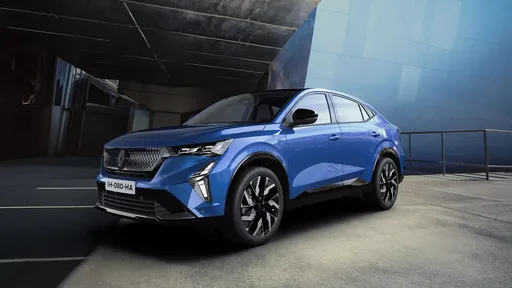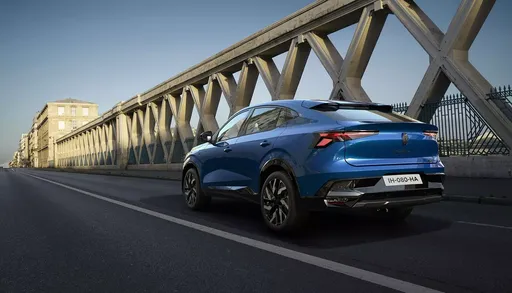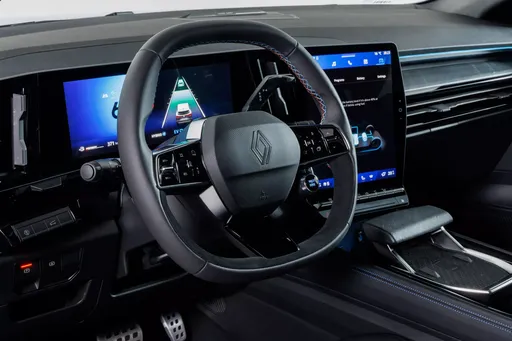Renault Rafale vs Toyota C-HR – Which one offers the better deal?
Everyday use, family trips or long-distance drives – here’s where the differences show.
Discover whether Renault Rafale or Toyota C-HR fits your lifestyle better.
Costs and Efficiency:
When it comes to price and running costs, the biggest differences usually appear. This is often where you see which car fits your budget better in the long run.
Toyota C-HR has a evident advantage in terms of price – it starts at 29100 £, while the Renault Rafale costs 37500 £. That’s a price difference of around 8408 £.
Fuel consumption also shows a difference: Renault Rafale manages with 0.60 L and is therefore evident more efficient than the Toyota C-HR with 0.80 L. The difference is about 0.20 L per 100 km.
As for range, the Renault Rafale performs evident better – achieving up to 97 km, about 29 km more than the Toyota C-HR.
Engine and Performance:
Power, torque and acceleration say a lot about how a car feels on the road. This is where you see which model delivers more driving dynamics.
When it comes to engine power, the Renault Rafale has a distinct edge – offering 300 HP compared to 223 HP. That’s roughly 77 HP more horsepower.
In acceleration from 0 to 100 km/h, the Renault Rafale is slightly quicker – completing the sprint in 6.40 s, while the Toyota C-HR takes 7.40 s. That’s about 1 s faster.
There’s no difference in top speed – both reach 180 km/h.
Space and Everyday Use:
Cabin size, boot volume and payload all play a role in everyday practicality. Here, comfort and flexibility make the difference.
Both vehicles offer seating for 5 people.
In curb weight, Toyota C-HR is to a small extent lighter – 1505 kg compared to 1734 kg. The difference is around 229 kg.
In terms of boot space, the Renault Rafale offers evident more room – 627 L compared to 447 L. That’s a difference of about 180 L.
In maximum load capacity, the Renault Rafale performs clearly perceptible better – up to 1910 L, which is about 755 L more than the Toyota C-HR.
When it comes to payload, Renault Rafale barely noticeable takes the win – 444 kg compared to 425 kg. That’s a difference of about 19 kg.
Who wins the race?
The Renault Rafale proves to be wins the duel decisively and therefore becomes our DriveDuel Champion!
Renault Rafale is the better all-rounder in this comparison.
 @ Renault Group Media
@ Renault Group Media
Renault Rafale
Renault Rafale
The Renault Rafale dresses bold coupé-inspired lines around a practical crossover body, turning heads without trying too hard. Inside it serves up a comfortable, well-equipped cabin and engaging driving manners, making it a clever choice for buyers who want a bit of panache with their daily commute.
details @ Renault Group Media
@ Renault Group Media
 @ Renault Group Media
@ Renault Group Media
 @ Renault Group Media
@ Renault Group Media
Toyota C-HR
The Toyota C-HR cuts a striking figure with its angular styling and coupe-like profile, so you’ll never go unnoticed in the supermarket car park. It balances everyday practicality with a nimble, city-friendly personality, making routine commutes feel a touch more fun without asking for forgiveness.
details @ Toyota Motor Corporation
@ Toyota Motor Corporation
 @ Toyota Motor Corporation
@ Toyota Motor Corporation
 @ Toyota Motor Corporation
@ Toyota Motor Corporation
 @ Toyota Motor Corporation
@ Toyota Motor Corporation
 @ Toyota Motor Corporation
@ Toyota Motor Corporation
 @ Renault Group Media
@ Renault Group Media
|
 @ Toyota Motor Corporation
@ Toyota Motor Corporation
|
|
|
|
Costs and Consumption |
|
|---|---|
|
Price
37500 - 49500 £
|
Price
29100 - 42800 £
|
|
Consumption L/100km
0.6 - 5 L
|
Consumption L/100km
0.8 - 5.1 L
|
|
Consumption kWh/100km
-
|
Consumption kWh/100km
-
|
|
Electric Range
97 km
|
Electric Range
68 km
|
|
Battery Capacity
-
|
Battery Capacity
-
|
|
co2
14 - 109 g/km
|
co2
17 - 115 g/km
|
|
Fuel tank capacity
55 L
|
Fuel tank capacity
43 L
|
Dimensions and Body |
|
|---|---|
|
Body Type
SUV
|
Body Type
SUV
|
|
Seats
5
|
Seats
5
|
|
Doors
5
|
Doors
5
|
|
Curb weight
1734 - 2025 kg
|
Curb weight
1505 - 1755 kg
|
|
Trunk capacity
539 - 627 L
|
Trunk capacity
350 - 447 L
|
|
Length
4710 mm
|
Length
4362 mm
|
|
Width
1886 mm
|
Width
1832 mm
|
|
Height
1613 mm
|
Height
1558 - 1564 mm
|
|
Max trunk capacity
1826 - 1910 L
|
Max trunk capacity
1076 - 1155 L
|
|
Payload
415 - 444 kg
|
Payload
375 - 425 kg
|
Engine and Performance |
|
|---|---|
|
Engine Type
Plugin Hybrid, Full Hybrid
|
Engine Type
Full Hybrid, Plugin Hybrid
|
|
Transmission
Automatic
|
Transmission
Automatic
|
|
Transmission Detail
Automatic Gearbox
|
Transmission Detail
CVT
|
|
Drive Type
All-Wheel Drive, Front-Wheel Drive
|
Drive Type
Front-Wheel Drive, All-Wheel Drive
|
|
Power HP
200 - 300 HP
|
Power HP
140 - 223 HP
|
|
Acceleration 0-100km/h
6.4 - 8.9 s
|
Acceleration 0-100km/h
7.4 - 9.9 s
|
|
Max Speed
180 km/h
|
Max Speed
175 - 180 km/h
|
|
Torque
-
|
Torque
-
|
|
Number of Cylinders
3
|
Number of Cylinders
4
|
|
Power kW
147 - 221 kW
|
Power kW
103 - 164 kW
|
|
Engine capacity
1199 cm3
|
Engine capacity
1798 - 1987 cm3
|
General |
|
|---|---|
|
Model Year
2024 - 2025
|
Model Year
2024 - 2025
|
|
CO2 Efficiency Class
B, C
|
CO2 Efficiency Class
C, B
|
|
Brand
Renault
|
Brand
Toyota
|
What drive types are available for the Renault Rafale?
The Renault Rafale is offered with All-Wheel Drive or Front-Wheel Drive.
The prices and data displayed are estimates based on German list prices and may vary by country. This information is not legally binding.
